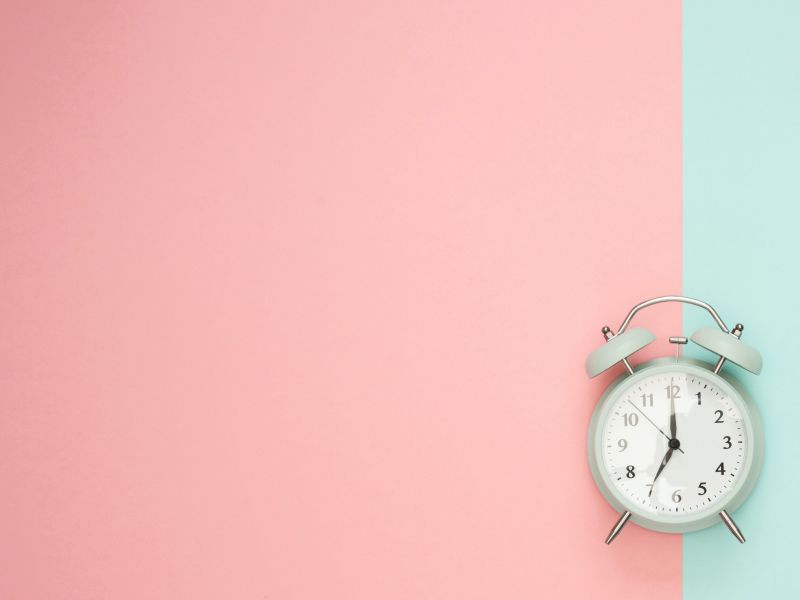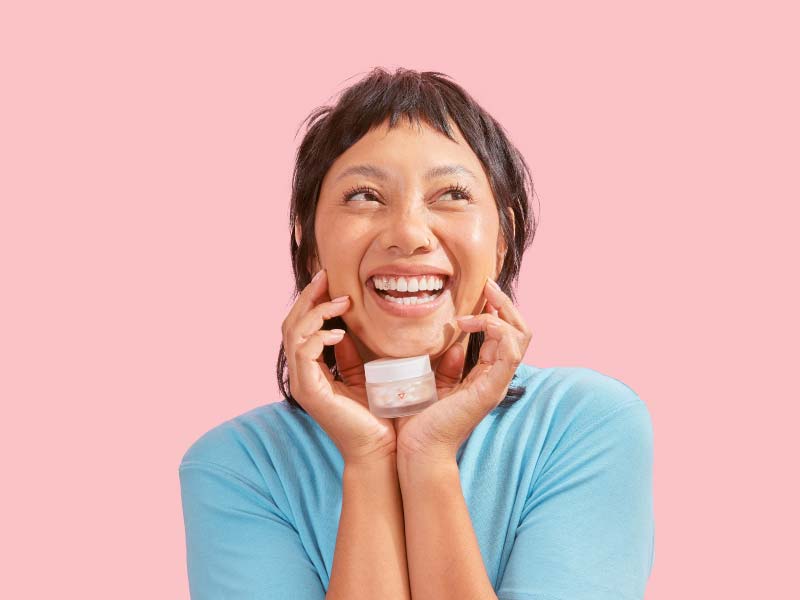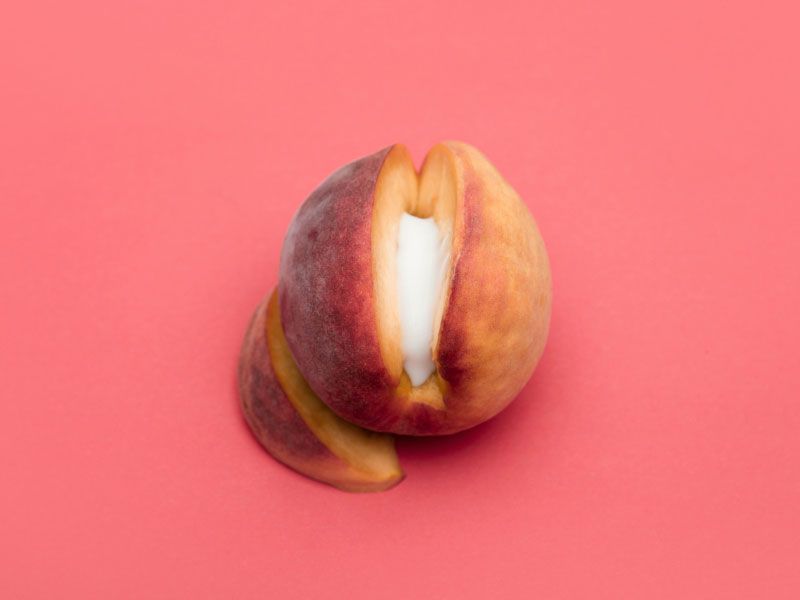
Chronic Yeast Infections:
Why They Keep Coming Back
Published on September 30, 2021
Updated on April 11, 2025
Written by Kathleen Morrison
Medically Reviewed by Andrea Sleeth WHNP-BC, MSCP
Got a problem with recurrent yeast infections? You aren’t alone.
About 75% of people with vulvas will experience a yeast infection in their lifetimes, and around 6% will experience repeat infections that come back over and over. Many of these patients report that their yeast infections also seem to recur at the same point in their cycle every month.
If that sounds familiar, you’re probably wondering why and what you can do to break your cycle of repeat yeast infections. Let’s get into it.
What Causes Recurring Yeast Infections?
Why do I keep getting yeast infections every month, you might ask?
Basically, recurring yeast infections often happen when something is disrupting the natural bacterial balance in your vagina.
Here’s some simple science: A healthy vagina typically has a pH level between 3.8 and 4.5 (slightly acidic), which helps fight off foreign bacteria and avoid infections. Anything that alters this pH or affects your vagina's natural bacteria can lead to a yeast infection.
Healthy vaginal bacteria help keep the yeast (Candida) under control, but when this balance is disturbed, yeast can multiply rapidly, leading to the discomfort of itching and burning.
Simply put, some bodies have a balance of conditions that just promote yeast overgrowth, which makes you more likely to get chronic infections. It’s not the answer you wanted, we know.
The factors that contribute to recurring vaginal yeast infections can vary from person to person, but there are a few common triggers you may recognize:
- Bacteria introduced during sex
- Antibiotics are disrupting your natural balance
- Hormonal changes are throwing things off
- Your vaginal bacteria is out of whack
- You're providing a damp environment for Candida to thrive
- You have a weakened immune system
Sex
Sex introduces foreign bacteria and fluids into your vagina, which can disrupt the natural balance.
Some products, like flavored or scented condoms and lubricants, can be fun but irritating to your sensitive bits, especially if you're prone to yeast infections (or vaginal thrush).
Semen can also change your vaginal pH, making it easier for yeast to grow. You don't have to avoid sex altogether, but experimenting with gentler products or using a barrier method like condoms can help reduce your risk.
Adding natural supplements like boric acid to your routine may also help balance your vaginal pH, but a key thing to remember is that you may want to put a pause on sex to give your body time to recover from a previous yeast infection.
These statements have not been evaluated by the Food and Drug Administration. This product is not intended to diagnose, treat, cure, or prevent any disease.
Antibiotics
While antibiotics are essential for treating infections, they can also disrupt your vaginal bacteria.
Antibiotics kill both harmful bacteria and the helpful bacteria that keep yeast in check. This disruption can lead to recurring yeast infections, which is why doctors often prescribe antifungal medication alongside antibiotics.
If you're on antibiotics, chat to your doctor about ways to avoid getting annoying yeast infection symptoms throughout the process—nobody needs that additional stress.
Hormonal Changes
Hormonal shifts can also contribute to recurring yeast infections. Many people notice more yeast infections during menopause when hormone levels fluctuate. Even birth control pills can cause similar disruptions in your body’s hormonal balance, increasing the likelihood of yeast infections.
Something as natural as your menstrual cycle can lead to recurring yeast infections—particularly in the days before or after your period when hormonal levels are changing.
Vaginal Bacteria Imbalance
A healthy balance of vaginal bacteria typically keeps Candida from (over)growing. However, any variation or imbalance in that bacteria may let Candida start growing unchecked.
These imbalances and variations in vaginal bacteria commonly happen when you do things like take antibiotics (unavoidable sometimes) or douche (more soon on why you should stop douching), which can remove too much bacteria from your vagina.
A good way to help you maintain a healthy balance of bacteria is by taking a daily probiotic—but make sure it includes lactobacillus if you want the best possible results downstairs.
Wet Conditions
Candida also loves wet conditions like saliva or sweat. Yummy.
If you're providing a continuously damp environment, like when you leave on your bathing suits or workout clothes for too long, Candida will move in like a friend crashing on your couch—and can make a mess of your life for a few weeks.
Weakened immune system
You're also more at risk for getting chronic yeast infections if your immune system is weaker than usual. Some factors that can cause a weakened immune system include:
- Age
- Taking certain kinds of medication
- Other health conditions
Can You Be Prone to Yeast Infections?
Short answer: Yup. Along with external factors like douching, antibiotic use, moist conditions, and poor hygiene, which can make getting infections more likely, you may just be prone to these pesky infections due to heredity.
Other factors that put you at a higher risk include:
- Diabetes
- High levels of estrogen
- Sexual activity
- Weakened immune system
What Causes a Yeast Infection before your period?
People who are old enough to experience monthly periods (menstruation) are much more likely to experience yeast infections compared to younger people with vaginas who have not yet started their first cycle.
This is likely due to a number of different factors, but the hormonal changes that bring about menstruation are linked to your vaginal environment and can play a role in increasing yeast infection risk for some people.
Yeast infections that occur before your period may be a result of changes in vaginal pH that happen during that time as part of your normal cycle.
What causes a Yeast Infection after your period?
If you are getting yeast infections after your period every month, high levels of estrogen may be to blame.
High levels of estrogen can lead to Candida overgrowth, and a boost in estrogen directly after your period.
How do you Treat Chronic Yeast Infections?
If you feel like a yeast infection is on the way (IYKYK), you can take steps to take extra care of your vaginal health by skipping activities that you know could be irritating, like sex, wearing dry cotton undies, and using precautionary supplements like boric acid or probiotics.
It may take some trial and error to figure out a routine that works for you, but your dedication will pay off! If you can’t seem to crack the code, you can always order prescription antifungals for fast treatment and message your medical provider with questions about your specific situation. They’ll be your best source of medical information about yeast infections and treatment.
Wisp treatment options are available only after consultation with a licensed medical professional. You should consult with your healthcare provider before starting a new supplement or treatment regimen. Individual results may vary.
Here are a few daily life hacks that may help you take better care of your vaginal and urinary health, too:
- Avoid douching and scented hygiene products: Society would have us assign nasty adjectives to vaginas, but you know what? Vaginas are naturally pretty good at keeping clean. Douching can cut down on healthy bacteria, while scented sanitary pads, bubble baths or shower gels can irritate sensitive skin and increase the risk of infection.
- Practice good feminine hygiene: Wipe from front to back when you use the bathroom, and make sure you frequently change any panty liners, pads and tampons you're using.
- Wear the right underwear: Loose, breathable underwear, especially cotton, allows excess moisture to move away from those warm and damp areas of your body.
Breaking the Cycle
Dealing with monthly yeast infections can be frustrating, but you're not alone, and there are plenty of ways to break the cycle.
Whether it's changes in your vaginal pH, hormonal fluctuations, or even lifestyle habits, understanding what's triggering your recurrent infections is the first step in maintaining healthy and happy yeast levels.
By staying aware of what could be causing these issues and incorporating some simple changes—like using probiotics, wearing breathable fabrics, or even trying natural supplements like boric acid—you can take control.
If things persist, don't hesitate to reach out for a treatment plan that works for you. At Wisp, we're here to help with fast, discreet, and effective treatment options. Take the next step in feeling your best and get the care you need when you need it.
This blog post is for informational and educational purposes only and should not be taken as professional advice. Always consult with a qualified professional before making any decisions based on the information provided here.




